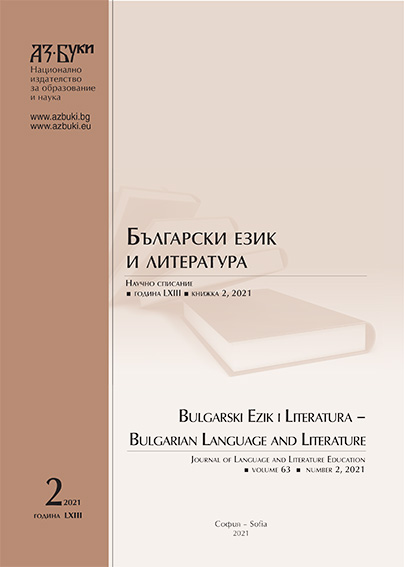About the Syntactic Structure of Bulgarian Proverbs and English Proverbial Parallels to Them
About the Syntactic Structure of Bulgarian Proverbs and English Proverbial Parallels to Them
Author(s): Nadezhda ErshovaSubject(s): Social Sciences, Language studies, Language and Literature Studies, Education, Foreign languages learning, Theoretical Linguistics, Applied Linguistics, School education, Vocational Education, Adult Education, Higher Education , State/Government and Education, Philology, Translation Studies, Inclusive Education / Inclusion, Phraseology
Published by: Национално издателство за образование и наука „Аз-буки“
Keywords: Bulgarian proverbs; English proverbs; proverbial parallels; paremiological minimum; syntactic structure; complex sentence; compound sentence; elliptical sentence
Summary/Abstract: The article considers the most frequent sentence structures of Bulgarian proverbial parallels to Russian proverbs included into G. L. Permyakov’s paremiological minimum. The aim of the study is to classify the syntactic structures of the Bulgarian proverbs in comparison with the structures of the English proverbial parallels. The research has been based on the findings of a paremiological sociolinguistic experiment conducted by Professor M. Yu. Kotova of St. Petersburg State University and her paremiological group that resulted into series of publications titled “Tetradi Paremiographa” (“Handbooks of a Paremiographer”). The relevance of studying sentence structures is due to the fact that the coverage of grammatical issues, i.e. the analysis and description of the logical and syntactic structures of proverbs, is not paid sufficient attention in many languages.
Journal: Български език и литература
- Issue Year: 63/2021
- Issue No: 2
- Page Range: 134 - 139
- Page Count: 6
- Language: English

